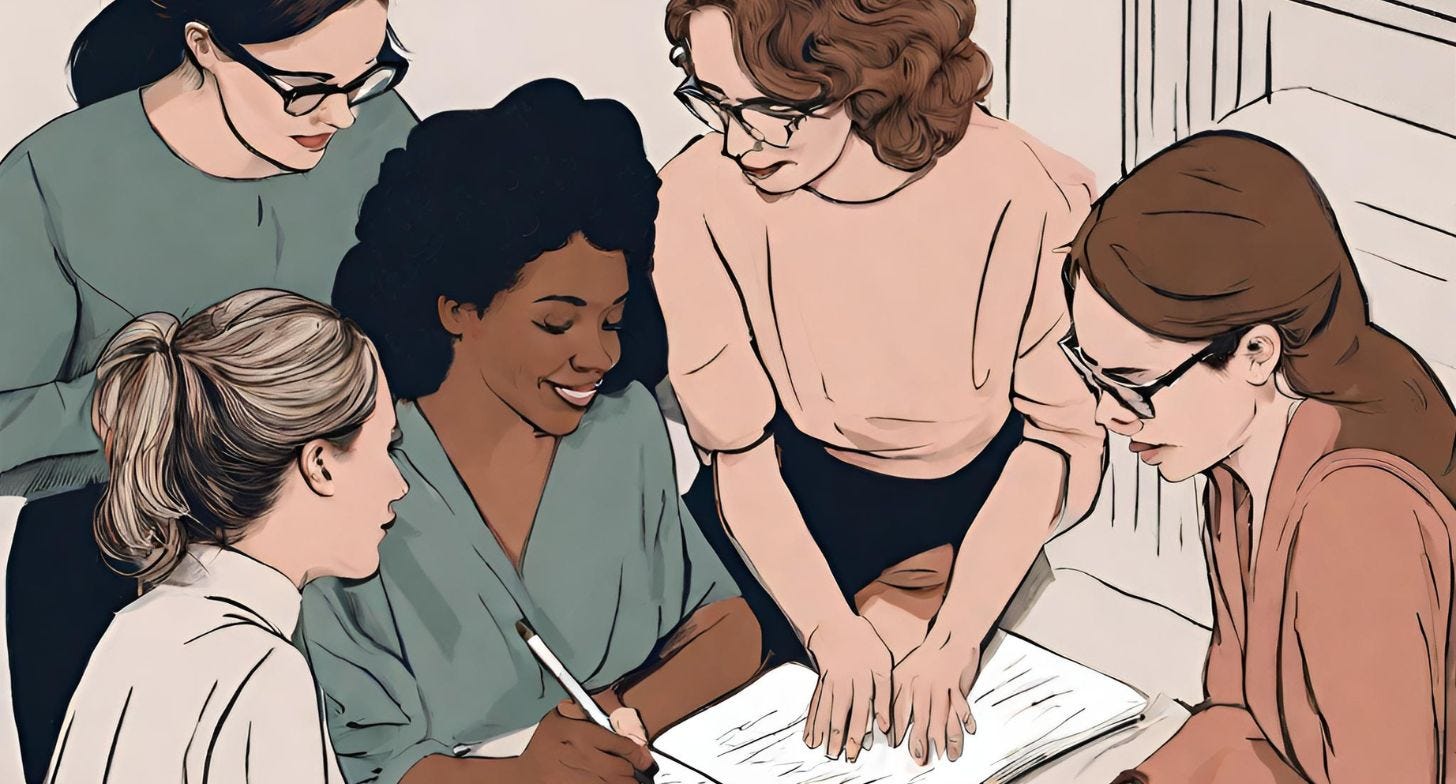The art of seeking and receiving critique
Mantra reminder: Get comfortable with being uncomfortable! (Writing Journal #4: When She Was Gone)
For an author to work to the highest standard they can, critique is essential. However, receiving critique can be one of the more challenging parts of author life, particularly for emerging writers, who are often, understandably, daunted at the thought of sharing their work. Critique is a constructive response to your work-in-progress, which is a very different thing to criticism (bad reviews require a whole other post!). This is because critique gives you the opportunity to respond and improve, as long as you know how to handle it. I was a book editor for a decade before I began publishing my own novels, so I was lucky to come to the process with confidence in the possibilities of good critique. Let’s take a look at how I approach editorial feedback, in the hope of allaying some of the fears that arise around this topic.
I’ve dealt with critique a lot over the last couple of months, because I’ve just finished the structural edit for my latest novel When She Was Gone, which will be released in September 2024. During this process, the overall structure of the book is critically examined from every angle: characters, plot, pace, tension, language, scene setting, and so on. To build the best version of the book for publication it’s vital to get rid of any sections that don’t work well and strengthen all the areas that do. I get essential feedback from my agent, my publisher and my editor at HarperCollins, and I also ask one or two trusted author friends to provide me with their thoughts. In this case, my close friend Dervla McTiernan took the time to really break down a few aspects of the book, and her expert eye was invaluable. (As many of you know already, Dervla is an amazing crime writer and has a book out in a few weeks called What Happened to Nina?. I loved it, and highly recommend you preorder here.)
So by the end of the structural process, only about half a dozen people have read the book (if you include my long-suffering husband, who gets the earliest draft before I even hand it in), and I trust them all for their honesty as well as their encouragement. This is my first piece of advice: find the right people (which can take time) - whether they are in writers’ groups, on writing courses, working as professional editors or trusted friends - and make sure they are helping you progress. I once tried sharing early drafts with a writing group and it didn’t work for me because people were writing in different styles and genres, across the literary/commercial spectrum, and they had different opinions on what my book should be. Even with the best intentions (which we all had), it wasn’t constructive, it was confusing. Now, everyone I include in this process has experience and appreciation of my style of storytelling and how it works within the genre of mystery/thriller/psychological suspense. This isn’t to say that crime writers can’t give feedback on romance and vice versa, but you’ll get the most out of expert advice from those working and reading in a similar field. If you’re short of reader support, craft books can also play a part here, and you can use them to help you critically analyse your work.
However, the other vital aspect of critique is how we receive it. While we all want praise (and believe you me, by the time I’ve finished my umpteenth draft I’m more than ready for some backslapping and a stream of superlatives), unfortunately what we really need is honesty. Occasionally that honesty can be a little bit heartbreaking (if someone thinks your book isn’t working), but often it’s just about analysing the nuts and bolts of the story to try to improve it. And while you should always feel ownership of your project, and you don’t need to do everything an editor/reader suggests, I strongly advise that you don’t reject the less comfortable ideas and feedback straight away. Let any challenging comments settle for a day or two, and try to distance yourself emotionally from your work so you can consider it from your reader’s perspective.
If critique is hard for you, remember that all the authors you adore have gone through the process of hearing that something in their writing isn’t working and needs improvement. Every one of my books has required me to dig in and work extremely hard through the editing process, sometimes multiple times, before being ready for publication. The best critique should be encouraging, not demoralising, once you’ve had chance to digest what’s been said. And I promise that if you embrace it, the results will be well worth all your hard work.
Finally, if someone says something nice during the critique process, please believe it! Don’t let the critical comments stick without absorbing the great feedback too.
If you’d like to see me interview Dervla about her new book What Happened to Nina?, we’ll be on stage at St Stephen’s School Theatre in Duncraig on 29 February, and tickets are available here.





Nicely said.